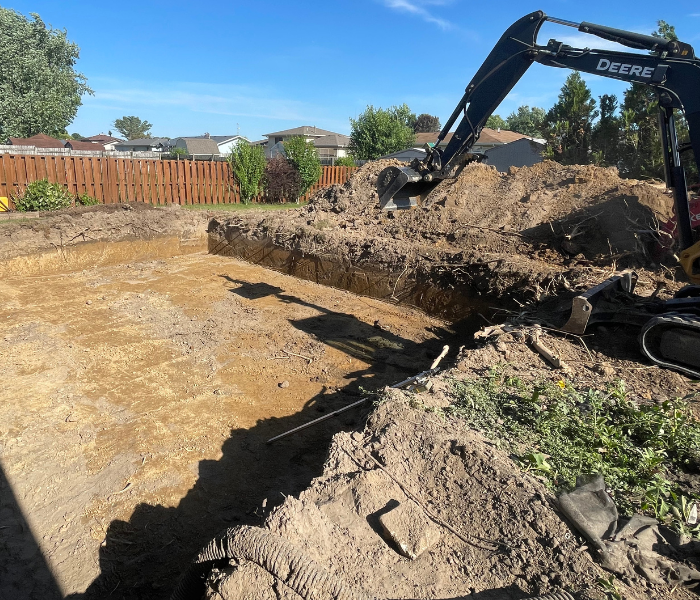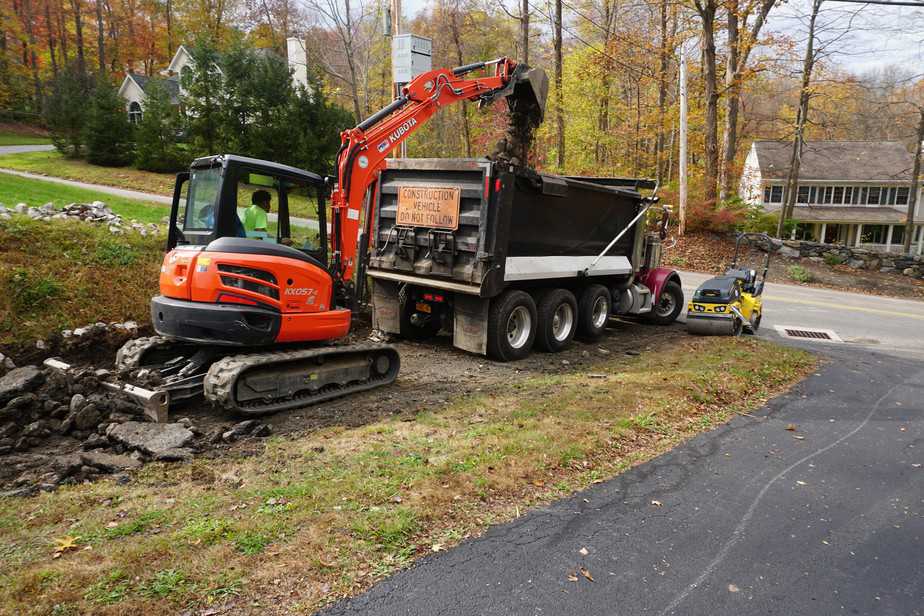Residential Excavating Ohio - Specialized Excavation for Ohio Houses
Residential Excavating Ohio - Specialized Excavation for Ohio Houses
Blog Article
Comprehensive Excavation Approaches: Mastering the Principles for Success
In the world of building and civil engineering, the significance of efficient excavation techniques can not be overemphasized. The careful preparation, specific implementation, and meticulous focus to detail called for in excavation projects require a detailed technique that incorporates different essential elements. From initial soil analysis to the implementation of safety steps and regular progress surveillance, grasping these core components is vital for attaining success in any excavation endeavor. Nonetheless, truth proficiency exists not just in recognizing these fundamentals but in flawlessly incorporating them to browse the intricacies of excavation projects with skill.
Recognizing Excavation Task Preparation

Successful excavation jobs are improved the foundation of thorough and careful planning. The first phase of any type of excavation project is the drawing board, where critical choices are made that can substantially affect the outcome of the project. Throughout this phase, it is vital to gather all pertinent information regarding the site, consisting of topographical surveys, soil make-up, and any possible threats that might exist. Understanding the task budget plan, timeline, and scope restraints is vital for producing a detailed excavation strategy that makes sure the task's success.
One trick element of excavation project planning is the advancement of a detailed timeline that lays out the series of milestones, activities, and due dates. This timeline serves as a roadmap for the task team, allowing them to track progress and make necessary adjustments to make sure the task remains on timetable. Additionally, a well-defined budget that represents all costs, consisting of tools service, labor expenses, and materials, is vital for avoiding expense overruns and delays. By carefully considering all these variables throughout the drawing board, excavation jobs can be implemented effectively and efficiently, resulting in successful results.
Soil Analysis and Website Assessment
Performing complete dirt analysis and site analysis is a critical action in the preparation phase of any excavation job. Dirt evaluation includes establishing the structure, framework, and residential properties of the soil at the excavation site. This details is critical for understanding the soil's bearing capacity, dampness web content, and possibility for erosion, which are essential factors in identifying the excavation techniques and tools required for the project.
Site assessment goes past soil analysis and encompasses a more comprehensive assessment of the overall site problems. This assessment includes identifying any type of possible dangers, such as below ground utilities, ecological problems, or unsteady terrain, that can affect the excavation procedure. By completely evaluating the site, task managers can develop effective excavation strategies that focus on safety, effectiveness, and environmental management.
Using advanced technologies like ground-penetrating radar, dirt sampling, and drone studies can enhance the accuracy and efficiency of dirt analysis and site examination. Spending time and resources in these initial actions can eventually conserve time and avoid costly delays or issues during the excavation process.
Equipment Choice and Application
Efficient excavation tasks depend greatly on calculated devices option and use to ensure optimum efficiency and performance. Picking the ideal equipment for the work is crucial in optimizing effectiveness and lessening downtime. Elements such as the sort of soil, deepness of excavation, and job range play a substantial function in establishing the most appropriate tools for the job at hand.

In addition to picking the suitable equipment, proper use is vital to project success. Operators should be educated to manage the devices safely and efficiently - lancaster trenching. Regular maintenance checks and timely repair work assist stop breakdowns and ensure regular efficiency throughout the job
Precaution and Rules Conformity
In the realm of excavation jobs, focusing on security actions and conformity with policies is vital to making certain a secure and legally sound functional atmosphere. Precaution incorporate an array of methods, including performing extensive site evaluations, applying appropriate signs and barriers, and giving sufficient safety training for all employees included in the excavation process. Adherence to regulations, such as OSHA demands in the United States, guarantees that the excavation project meets the essential requirements to shield workers, onlookers, and the surrounding atmosphere.

Monitoring Development and Adjusting Techniques
Exactly how can project managers efficiently track the improvement of excavation projects and adapt their methods appropriately to maximize end results? Surveillance progress is necessary for guaranteeing that excavation tasks remain on track and meet deadlines. Project managers can use numerous tools and techniques to track development, such as pop over to this site day-to-day report card, normal site evaluations, and progressed surveillance innovations like drones and general practitioners tracking systems. By constantly keeping track of the task's improvement, supervisors can recognize any kind of possible hold-ups or concerns at an early stage and take positive procedures to resolve them.

Conclusion
To conclude, mastering the fundamentals of comprehensive excavation strategies is vital for the success of any type of job. By recognizing task planning, assessing soil and site problems, choosing suitable devices, conforming with security policies, and keeping track of progression, task managers can make sure a smooth and efficient excavation procedure. Carrying out these methods will result in successful end results and decrease prospective threats or troubles throughout the excavation task.
The preliminary phase of any see this page excavation project is the planning stage, where important choices are made that can considerably influence the result of the job. Understanding the job budget, scope, and timeline constraints is crucial for creating a comprehensive excavation strategy that makes sure the project's success.
How can forecast supervisors efficiently track the advancement of excavation tasks and adapt their methods as necessary to maximize results? By closely keeping track of progression and being prepared to adapt techniques, project supervisors can improve the overall success of excavation tasks.
By understanding project planning, evaluating soil and website conditions, picking proper equipment, abiding with security guidelines, and checking progress, project managers can ensure a reliable and smooth excavation process.
Report this page